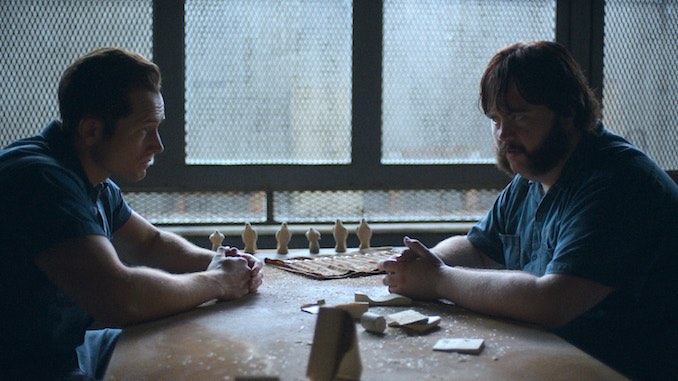In Apple TV+’s Disturbing Black Bird, the Devil Is in the Details
Photo Courtesy of Apple TV+
Trigger Warning: Death, murder, sexual assault, torture.
Spoiler Warning through Black Bird Episode 5.
![]()
Has the reveal of a bike for a child’s birthday ever instilled such visceral horror?
There are many different ways to categorize crime shows, but ultimately it comes down to two types: those where the corpse matters, and those in which it doesn’t. Most detective shows or mystery series are more interested in the crime scene than the victim; most of all, they’re interested in the killer. After all, the psychology of evil can be a seductive thing to investigate—to try and make sense of unimaginable terror, to find order amidst the chaos. It makes it better to believe that there was, somehow, a reason that these things happened the way they did, even if the end result is still a tragedy.
The best crime series, though, are the ones that don’t just start with a dead body and move on; they’re the ones that pull focus to the person who was killed, giving them meaning beyond being a corpse for the purpose of the story. At the very least it reminds us that they were alive, instead of just a body to note before moving on.
“You can die, but you can’t un-live.”
When I started Black Bird, I expected it to go down more of a detective-show route, which I love. While I count a few deeper, more emotional crime dramas among my favorites, they’re hard to watch. I’m not a true crime junkie. I need the certainty of a fictional ending, a carefully crafted story that allows me to emotionally detach, reminding myself that these characters aren’t real people. They might be based on real cases, and almost certainly there are cases that mirror these events. But they can be told soulfully without being haunting.
So, to Black Bird. A crime show about whether or not a prisoner seeking appeal is a serial killer or a serial confessor—interesting! And it all began with the dogged detective and the federal agent trying to catch their man. It was all very familiar. Then we started to spend more time with Larry Hall.
Despite only being six episodes, Black Bird is an effective slow burn to the point of being agonizing. But that serves it well in building tension and atmosphere: long scenes hinge on finely honed work by the actors, underscored by quiet, pulsing music by Mogwai. Jimmy’s (Taron Egerton) unusual job as a convict is to unravel the truth behind Larry’s (Paul Walter Hauser) confessions, and buy himself a get-out-of-jail-free card. Meanwhile, the reality of the crimes, whoever committed them, are investigated alongside this—cases reopened, bodies searched for, one found.
It’s the one that is found, Jessica Roach, that the show’s fifth episode, “The Place I Lie,” focuses on. Here, the long-deceased Jessica narrates a few select happy moments from her young life. These sweet, innocent reveries are juxtaposed, ultimately, with Larry detailing to Jimmy how he first approached Jessica and her flat tire, how they talked, how he bound her up in his van and made her pass out from a rag soaked in fuel. How he beat her, raped her, tied her to a tree and killed her. That she was 15 years old.
-

-

-

-

-

-

-

-

-

-

-

-

-

-

-

-

-

-

-

-

-

-

-

-

-

-

-

-

-

-

-

-

-

-

-

-

-

-

-

-








































